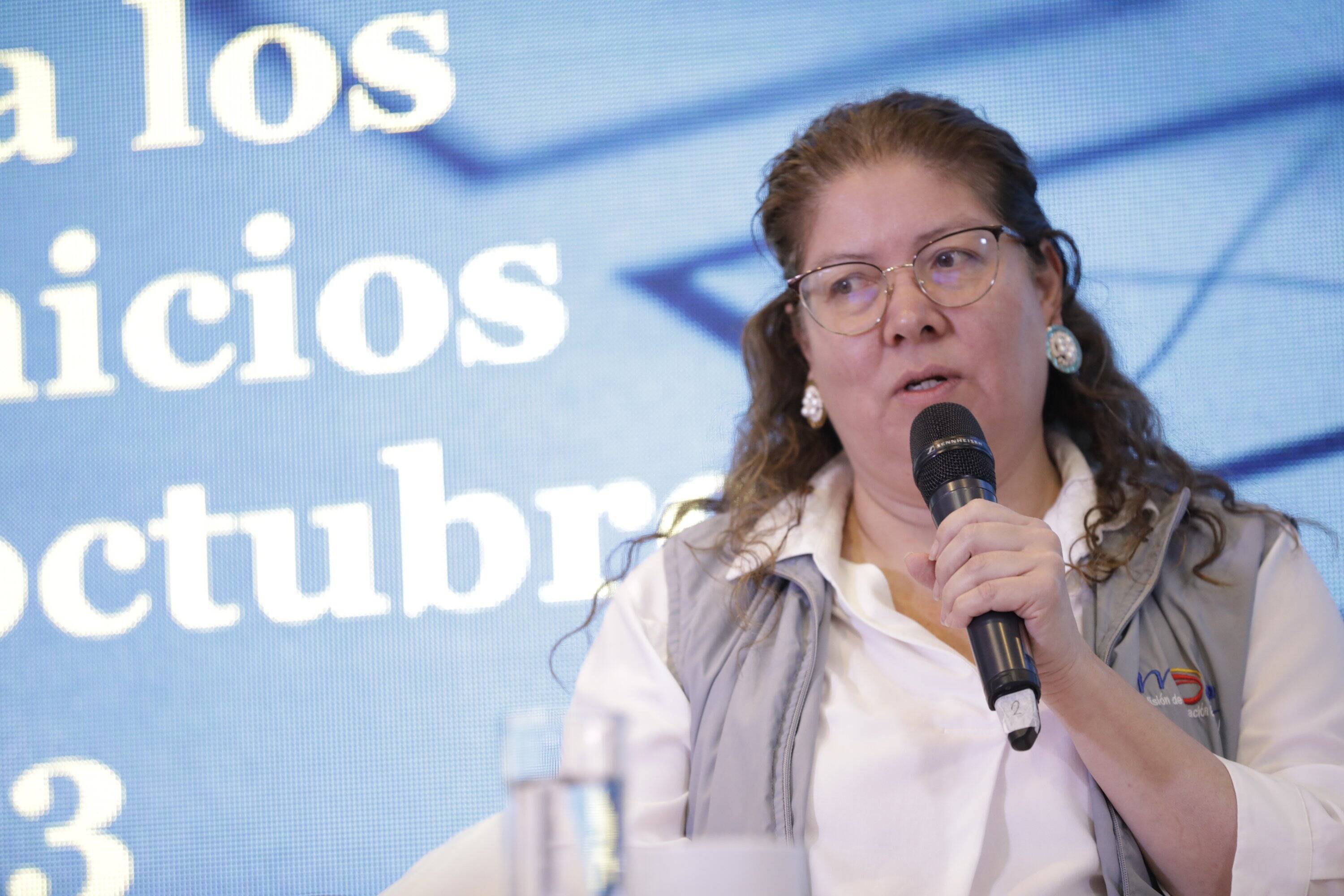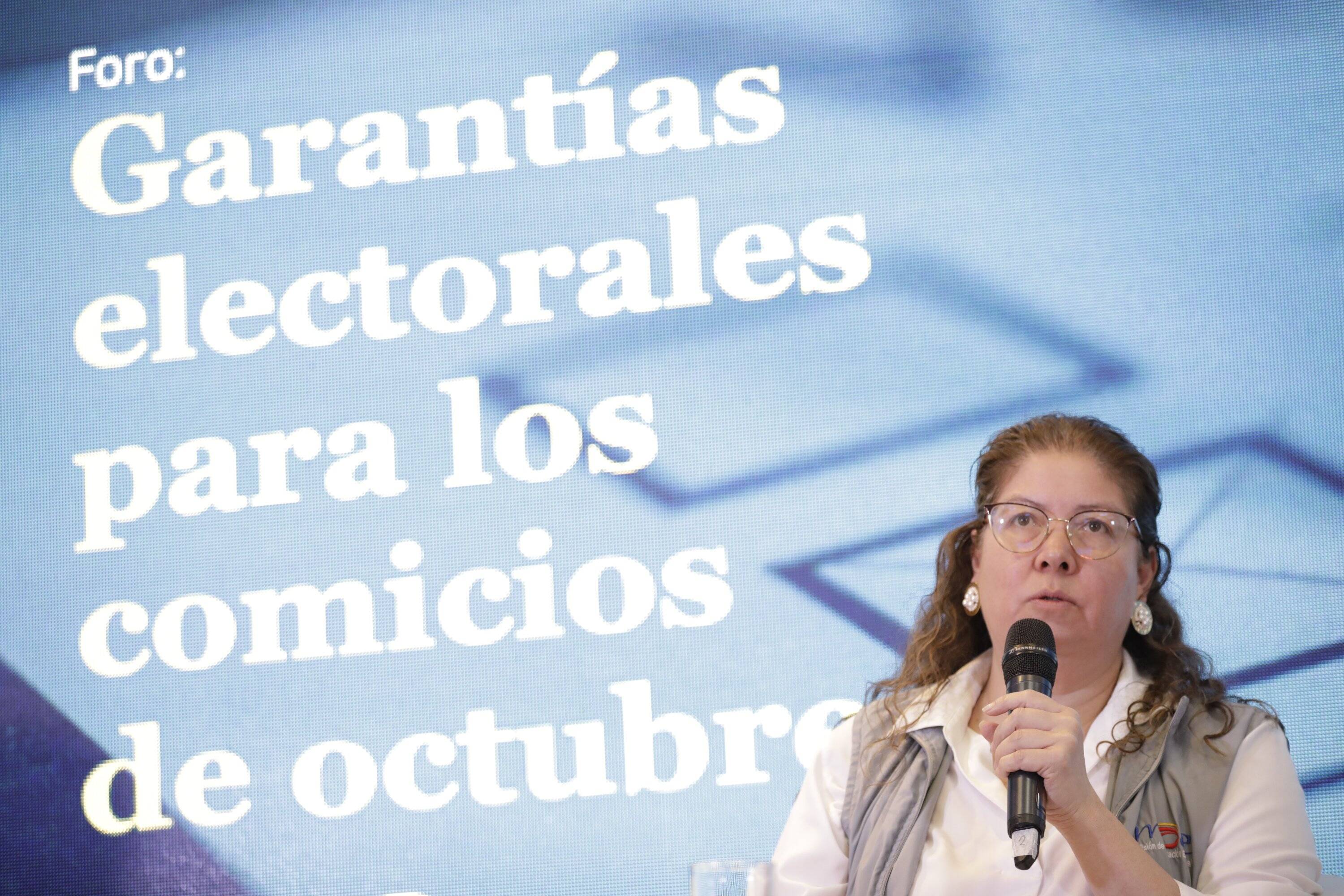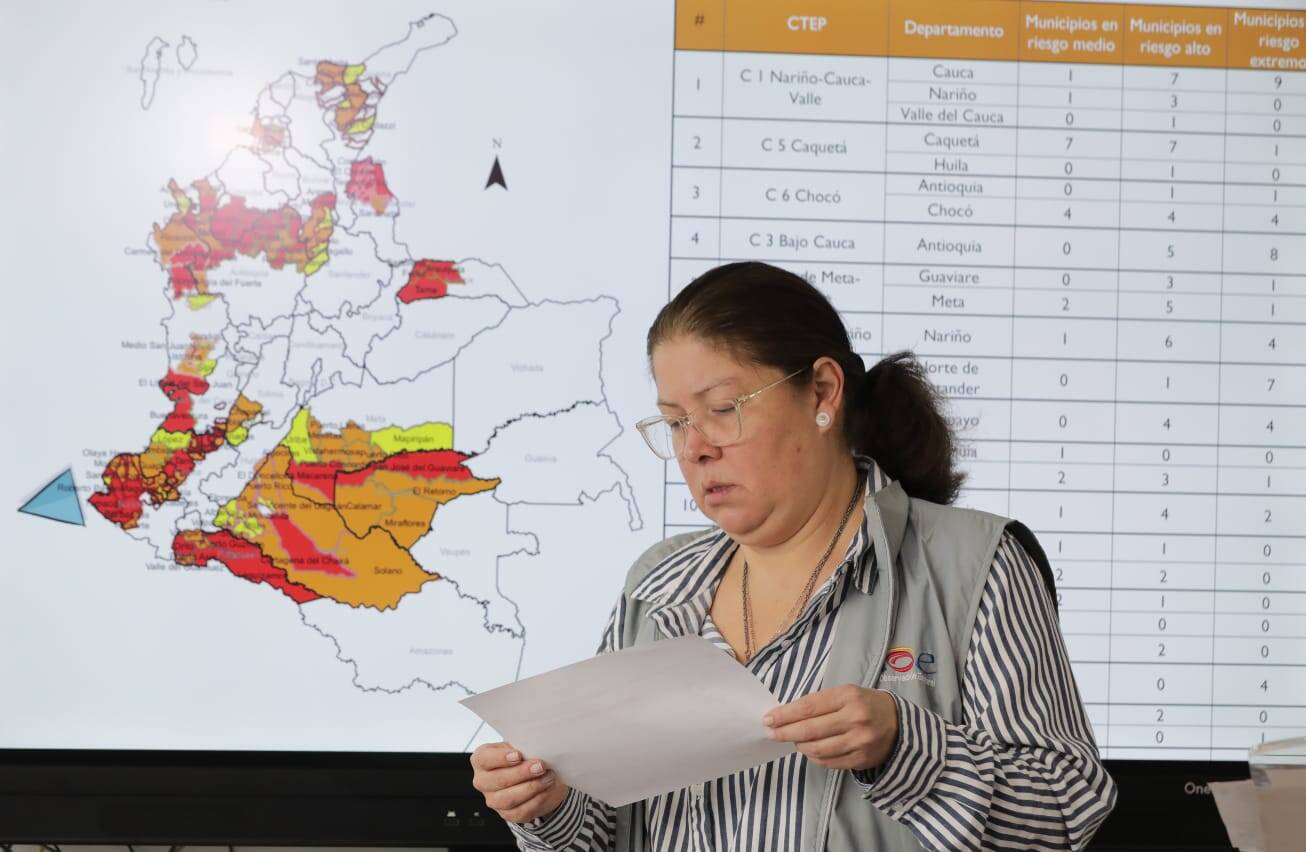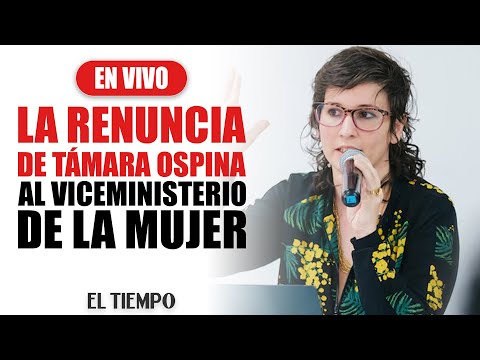'It is completely false that the 2026 hiring of the Registry Office is aimed at fraud': MOE

Alejandra Barrios, director of the Electoral Observation Mission (EOM), has been closely monitoring the process leading up to the 2026 elections. The head of the oversight body reviewed the contracting process a few days ago and noted that no notable irregularities were found. She even warned of the dangers of comments made by President Gustavo Petro that raise doubts about the electoral system.
Did the EOM detect any irregularities in the awarding of the contract for next year's election logistics? We monitored the contract and the abbreviated selection process, and it was carried out in accordance with the law and the terms established in the call issued by the Registry. We're talking about a substantial contract, worth 2.1 trillion Colombian pesos, or approximately $526 million.

Alejandra Barrios, director of the MOE. Photo: Sergio Acero. EL TIEMPO
Here, it's important to differentiate this from what has been reported from high-level sources and on social media: the company doesn't do the counting. It's not done by this comprehensive solution, nor by any other. That is, the counting isn't included in a contract because in Colombia, the pre-count phase is done by voting juries, and the official counting is done by judges of the Republic and notaries. Therefore, it's neither accurate nor necessary to point out that the selected union is doing the counting. It's very important to keep in mind that the general counting software is owned by the National Electoral Council. It was purchased with funds from the Registry in 2022 from a company called Indra and handed over to the National Electoral Council not only for safekeeping but also for management.
Is there room for fear regarding software? Any process involving human beings or technology can be subject to intervention, that is, a major hack. Digitization software and the software that aggregates information from the counting judges must be surrounded by all the necessary computer security measures. Absolutely nothing is infallible; we've seen this in various systems, even high-security systems related to defense, which may be subject to some type of vulnerability. But what cannot be affirmed in any way is that this contracting is intended to rigg the upcoming elections. That is completely wrong, completely false, but it also undermines confidence in the electoral process.
Does the EOM have any concerns about Thomas' participation in these processes? We think it's important for the government to be more specific in its concerns. But when such general statements are made (such as saying transparency is at risk), absolutely nothing can be done. The joint venture, which includes more Thomas Greg family companies, should have submitted all the experience requirements and a technical test.

Alejandra Barrios, director of the MOE. Photo: Sergio Acero. EL TIEMPO
We invite the various stakeholders who have legitimate concerns to ask them specifically so that we can all hear the responses from the electoral authorities. We must stop making general assertions or statements, especially at the decision-making level, that, instead of proactively helping to ensure the adoption of risk management measures, generate more uncertainty or mistrust.
Thirteen parties did not attend the Electoral Monitoring Commission. What do you think about that? The forum where guarantees are provided, where questions, complaints, or recommendations for changing course are presented, is precisely the National Electoral Monitoring Commission. That is the forum par excellence. Today, we have 31 political organizations, and bilaterally serving 31 political organizations for the organization of elections is neither the most efficient nor the most appropriate way to do so. If the electoral monitoring commissions continue to be ignored, we lose that space, which is the most important for the opposition to have guarantees.
And security? This is one of the issues raised by the Electoral Monitoring Commission. So far this year, we have recorded 134 acts of violence against social, political, and community leaders, but 54 of these acts have been specifically directed against councilors and mayors. This year marks the most violent start we've had since 2018. We've had 979 armed actions since the beginning of the year. We're talking about armed actions that affect infrastructure, such as motorcycle bombs and car bombs, which affect citizens and generate fear in some places.

Alejandra Barrios Cabrera, director of the MOE. Photo: @hectorfabiozamora
The third issue we presented is monitoring the registration of ID cards. We have a 64 percent increase right now compared to the same period in the last election. We presented a list of 52 municipalities where we believe it is worthwhile for the National Electoral Council and the Registry to take a specific look at what is happening, as we have a very high atypical statistical trend in ID card registration. And finally, we told the National Electoral Council that, if one looks at the accounting at this time, they don't have information on how much the different significant groups of citizens who are in the process of collecting signatures have spent.
What impact do the President's pronouncements have on the electoral system? It has them all. The President of the Republic is the most visible, represents the voice of all Colombians, and is also responsible for governing the elections, providing guarantees and security to the candidates and pre-candidates. The Executive Branch cannot be excluded from the organization of the elections and is primarily responsible for their governance. Therefore, if there is no adequate communication from the Executive Branch, a sense of distrust begins to develop regarding the upcoming electoral process, which is not positive for anyone, not for the National Government, not for political organizations, and much less for the citizenry.

Resignation of Támara Ospina, Deputy Minister of Women. Photo:
Juan Sebastian Lombo Delgado
eltiempo




